How to Apply
Faculty Mentors
Translational
- David M. Jablons, M.D.
- Laura J. Esserman, M.D., M.B.A.
- Michael J. Campbell, Ph.D.
- Kimberly Kirkwood, M.D.
- Jeroen Roose, PhD
- Christina Yau, PhD.
- Liang You, Ph.D.
- Julie Saba, MD, PhD
Regulatory Sciences
- Laura Van 'T Veer, PhD
- Kathy Giacomini, PhD
- Deanna Kroetz, PhD
- Barbara Koenig, PhD, RN
- Nola Hylton, PhD
- Brian Shoichet, PhD
- Ida Sim, MD, PhD
Health Services & Implementation Science
- Emily Finlayson, M.D., M.S.
- Elizabeth C. Wick, M.D.
- Julie Ann Sosa, M.D., M.A., FACS
- Louise Walter, MD
- Andrew Auerbach, MD
- Kim Rhoads, M.D., M.P.H
- Alex Smith, MD, MPH
- Maren Scheuner-Purcell, MD, MPH
- Leslie Wilson, PhD
Fellows
Current Fellows
- Nisha Parmeshwar, M.D.
- Alexis K. Colley, M.D., M.S.
- Nathan R. Brand, M.D.
- Kelli Ann Ifuku, M.D.
Past Fellows 2021-2022
- Laura L. Barnes, M.D.
- Nathan R. Brand, M.D.
- Patricia Conroy, M.D.
Past Fellows 2020-2021
- Alexa Glencer, M.D.
- Joseph Lin, M.D.
Curriculum
Trainee Portal
T32 Trainee Experiences
Faculty Mentors
Translational
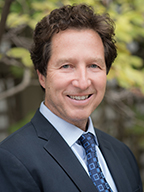
Professor of Surgery
Chief, General Thoracic Surgery
Nan T. McEvoy Distinguished Professor of Thoracic Surgical Oncology
Ada Distinguished Professor of Thoracic Oncology
Program Leader Thoracic Oncology
Director, Thoracic Oncology Laboratory,
UCSF Helen Diller Family Comprehensive Cancer Center
Translational Co-Lead: Dr. Jablons is Director of the Thoracic Oncology Lab focusing on molecular therapeutics, molecular diagnostics, systems biology, systems genetics, and bench-to-bedside drug discovery. His lab employs state of the art technology such as next generation sequencing, synthetic chemistry and 3Dcomputer simulation for drug discovery and leverages one of the largest thoracic tissue banks in the world. Training experience: Dr. Jablons has mentored nearly 100 students, post docs, fellows, and junior and midlevel faculty for the past 25 years at UCSF, many of whom have since achieved significant advances in lung cancer research and clinical care.
T32 trainees can avail themselves of numerous ongoing oncology projects in the Thoracic Oncology Laboratory, including pre-basic science and novel target drugs research, actual small molecule by design testing (in vitro and in vivo), clinical trial development and execution.
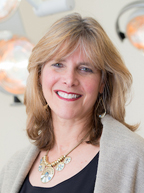
Professor of Surgery and Radiology
Division of Surgical Oncology
Chief, Section of Breast Care Surgery
Alfred A. de Lorimier Endowed Chair in General Surgery
Director, UCSF Breast Care Center
Translational Co-Lead: Dr. Laura Esserman, is internationally recognized for her leadership of the ground-breaking I-SPY2 clinical trial and as an advocate for de-escalation of treatment for DCIS, and the initiation of the virtual preference pragmatic personalized screening trial (WISDOM) seeking to personalize the approach to screening. Her work in breast cancer spans the spectrum from public policy issues to basic science and the impact of both on the delivery of clinical care. Dr. Esserman has mentored 36 post-doctoral or clinical fellows during her career. She developed and runs a post-baccalaureate program that has trained 123 students over the past 15 years, most of whom have gone on to careers in medicine.
Dr. Esserman’s broad research interests provide exceptional opportunities for multidisciplinary training across the three themes, through clinical trials and biomarker studies on screening, prevention and treatment of breast cancer, many of which focus on improving healthcare value. Another fundamental and scalable effort is the implementation of systems to integrate care and research.
Professor of Surgery
Division of Surgical Oncology
Dr. Campbell’s research is focused on characterizing the immune landscape within tumors and its relationship to indolent or idle breast cancer (and DCIS), as well as investigating changes in immune infiltrates in the context of therapy. His lab has developed multiplex immunofluorescence staining panels and multispectral imaging protocols for various immune cell populations. Dr. Campbell has mentored 15 pre-doctoral students and 8 clinical fellows over the past 17 years at UCSF, all of whom have gone on to careers in medicine or science.
Trainee opportunities in Dr. Campbell’s lab include participation in studies characterizing the tumor immune microenvironment in cancer and pre-cancerous lesions and identifying immune-related biomarkers of response to therapy, as well as pre-clinical studies evaluating new immunotherapeutic strategies. He has access to the over 1500 patients with serial samples from the I SPY-2 study, with the opportunity to predict response to novel and immune targeted treatments
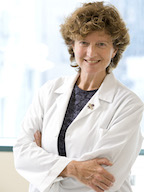
Professor of Surgery
Division of Surgical Oncology
Dr. Kirkwood specializes in treating pancreatic cancer as well as tumors of the upper gastrointestinal tract. She is an expert in applying minimally invasive techniques to treat abdominal tumors. She focuses on improving outcomes for patients after pancreas surgery and on understanding how pancreatic cancer develops at a cellular level. Dr. Kirkwood has mentored 43 predoctoral trainees and 24 postdoctoral fellows, and these individuals have been named first authors on 47 of her most recent 53 peer-reviewed publications. The majority of postdoctoral fellows pursue additional training in surgical oncology and hepato-pancreatobiliary surgery.
Trainees in Dr. Kirkwood’s lab generally focus on pancreatic cysts and pancreatic cancer. Her lab houses an extensive and clinically-annotated pancreatic biorepository, access to fresh tissue and biological fluids (cyst fluid, blood), and experimental mouse colonies. Dr. Kirkwood’s long-standing collaboration with the department of pharmaceutical chemistry/experimental therapeutics program, enables trainees to pursue projects with laboratory and clinician scientist co-mentors that have a proven track record of success.
Professor and Vice-chair, Anatomy
Dr. Roose’s research focuses on the impact Ras kinase signals have on cell fate decisions in health and disease, spanning the continuum from basic science to pre-clinical investigations. Dr. Roose also runs an organoid disease to biology unit connected to UCSF's CoLabs offering a rich training environment for staff, students, postdocs, and fellows cellular and translational biology and associated methods. Dr. Roose takes on several leadership positions in the UCSF graduate schools and has trained many graduate students and postdoc who have gone on to successful academic and biotech positions. In 2013 he received the 9th annual Mentoring award by the UCSF Postdoctoral Scholar’s Association.
Training opportunities in Dr. Roose’s lab and his Organoid D2B unit include studies on cellular signaling and cell fate choices, therapy, and biomarker discovery using organoids from UCSF cancer patients in a collaborative team setting.
Professor, Pediatrics
Dr. Saba is a leader in sphingolipid biochemistry investigating the role of S1P metabolism and signaling in development and disease, with expertise in molecular and cell biology, biochemistry, metabolomics, signal transduction, immunology and mouse models of colitis and colitis-associated cancer. Dr. Saba has over 20 years of experience as a mentor for 14 clinical fellows, 22 postdoctoral fellows and 24 graduate or undergraduate students. Her postdoctoral and medical fellows have either attained faculty positions at prominent universities, medical centers or pharmaceutical companies around the world.
There are several quality training opportunities in preclinical research in the Saba laboratory pertaining to surgery or utilizing surgical procedures, including performance of survival surgery to implant osmotic pumps for drug delivery, performance of nephrectomy surgery, and post-euthanasia animal dissections.
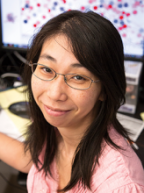
Associate Professor of Surgery
Division of Surgical Oncology
Dr. Yau is a biostatistician and bioinformaticist focused on the analysis of high dimensional biological data to further our understanding of the mechanisms driving cancer prognosis and treatment. She developed a multigene expression-based prognostic signature for triple negative breast cancers. She is leading the I-SPY 2 statistical team on developing molecular predictors of breast cancer treatment response and risk of recurrence, as well as on innovation in clinical trial design. Dr Yau has mentored 10 pre- or post- doctoral researchers during her career, 7 of whom has continued on to medical school or to careers in translational biomarker research.
For trainees that are interested in big data, bioinformatics, and novel trial design, Dr. Yau can serve as a bioinformatics and statistical mentor, and give all trainees the opportunity to learn to use R statistical software. Residents can also work on novel study designs and ways to leverage existing (high dimensional) datasets to address clinical/translational questions of interest.

Associate Professor of Surgery
Division of Adult Cardiothoracic Surgery
Dr. You has longstanding expertise in lung cancer and mesothelioma research and in the use of animal models to investigate genetic events for cancer initiation and progression. He aims to develop novel therapeutics targeting lung cancer metastasis and mesothelioma, analyzing key genes and proteins in self-renewal signaling pathways to find new drug targets. He has discovered and/or validated Wnt2, Dvl3, CK2, Cul4A and YAP as potential drug targets for human lung cancer and/or mesothelioma. In the last two decades, Dr. You has successfully trained over 40 pre-doctorates and 35 post-doctorates including many surgeons.
Opportunities for translational research projects in Dr. You’s lab include themes of lung cancer and mesothelioma biology including genetics, epigenetics, signaling pathways, drug resistance and synergy, target and drug discovery.
Regulatory Sciences
Professor, Bioengineering
Co-Director UCSF-Stanford Center of Excellence in Regulatory Sciences and Innovation
Regulatory Sciences, Co-lead: Dr. Giacomini is a world-renowned pharmacologist studying transporter biology, pharmacogenomics and regulatory sciences. Her work focuses on issues related to bioequivalence of generic drugs such as formulation differences, using a range of techniques, including bench research and large clinical trials using the electronic medical record to identify factors responsible for variation in drug response and toxicity. As Department Chair, she was responsible for three PhD graduate training programs including Pharmaceutical Sciences and Pharmacogenomics; Biological and Medical Informatics; and Bioengineering that trained over 100 PhD level students. Personally, Kathy has mentored over 60 PhD students and postdoctoral fellows, many of whom now hold faculty positions in academia or have careers with the FDA or industry.
Training opportunities range from laboratory-based research in cell-based therapies, small molecules, diagnostic tests, and large devices to clinical research focused on clinical trial design, patient reported outcomes and patient preferences, to regulatory sciences research relating to post-marketing surveillance and real-world data and digital health. The CERSI Innovations in Regulatory Science Summit is part of our Change Management and Leadership course.
Professor, Laboratory Medicine
Associate Director Applied Genomics
Regulatory Sciences, Co-lead: Dr. van ‘t Veer is a world-renowned molecular biologist and inventor of the MammaPrint 70-gene test that is FDA approved to assess risk of recurrence in breast cancer. Her research focuses on personalized medicine, aiming to advance patient management based on knowledge of the genetic makeup of the tumor as well as the genetic makeup of the patient. Dr. van ‘t Veer has successfully trained over 25 pre-doctorate students, 11 predoctorates and 21 postdoctoral fellows including surgical residents and fellows.
Opportunities for translational research projects in Dr. van ‘t Veer’s lab include the molecular prognosis and response prediction of breast cancer patients by state-of-the art bioinformatics and statistics tools, based on a wealth of available data from the I-SPY2 and the MINDACT trial as well as other relevant clinical studies. Molecular data include RNA expression, DNA mutation and protein activity data. Trainees will have the opportunity to work on getting biomarkers for tumor characterization qualified by the FDA for use within the I-SPY2 randomization engine.
Professor, School of Medicine, Radiology
Dr. Hylton, is an imaging scientist and breast cancer researcher with broad experience in the area of biomedical research. The goal of her interdisciplinary program is to develop imaging based biomarkers that can be used in combination with clinical and molecular information to individualize treatment strategies for patients with early breast cancer. She started her career developing the sequences and software that created breast MRI and has developed functional tumor volume (FTV), which is qualified as a biomarker for decision making and is the source of the longitudinal model for the adaptive design of I-SPY2. She is the imaging leader and co-PI of the I-SPY2 NCI Program project with Dr. Esserman with whom she has collaborated for 27 years and has been continuously funded by NCI for over 25 years.
Opportunities include optimization of imaging biomarkers using existing and newly developed imaging assessment to predict response and submit an Investigational Device Exemption to allow their use for clinical decision making. As well, trainees can harness national imaging networks (Cancer Imaging Atlas and the Quantitative Imaging Network) to develop imaging repositories to advance both translational and regulatory science and to better incorporate imaging science into the conduct of clinical trials and to be the catalyst for innovation and change,
Dr. Koenig is an anthropologist working in the inter-disciplinary field of bioethics. She founded and led Biomedical Ethics Research Programs at Stanford and Mayo Clinic and pioneered the use of empirical methods in the study of ethical questions in science, medicine, and health. Dr. Koenig has considerable experience mentoring clinicians and scientists across educational levels, from pre-docs through residents, fellows, and junior faculty. She leads a Bioethics grant for the WISDOM study with Drs. Esserman and van ’t Veer.
Training opportunities with Dr. Koenig focus on ethical issues around translational genetic testing (e.g. whole genome/exome testing or polygenic risk scores), use of patient data, return of uncertain results, and work at the clinical/research boundary (including on WISDOM).
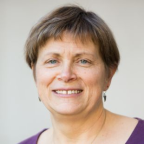
Professor, Bioengineering and Therapeutic Sciences
Dr. Kroetz is an internationally recognized pharmacologist with expertise in drug metabolism and transport, and pharmacogenomics. Her research program is focused on understanding host variability in drug response and toxicity, include the pharmacogenomics of cancer treatment related toxicities, efflux transporter structure and function, and regulatory science. Dr. Kroetz just recently completed 10 years as the Director of the Pharmaceutical Sciences and Pharmacogenomics (PSPG) Graduate Program and PI of the associated T32. She has mentored 15 graduate students, 10 pharmaceutical sciences pathway students, and more than 20 postdocs and visiting faculty.
Trainee opportunities in Dr. Kroetz’s lab range from participation in large clinical pharmacogenomics studies to iPSC-induced sensory neuron studies of gene function and drug toxicity, to collaborative studies to solve the structure of ABC transporters.
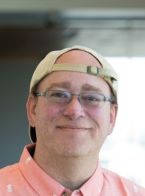
Professor, Pharmaceutical ChemistryLink to Pharmacy Profile/Bio
Dr. Brian develops new methods for drug discovery using intensive modelling and close collaboration between theory and experiment. By reducing biology to its molecular components and seeking to change how these fit together using novel synthetic molecules we design and by investigating how the biological molecules operate together, both in health and disease. In the past 10 years, he has mentored 10 pre doctorates and 20 post-doctoral trainees, the majority of whom have gone onto research-related careers. He is a preceptor on NIH Training Grants in Biophysics (PI, Matt Jacobson), Chemical Biology (PI, Charly Craik) and Pharmaceutical Sciences (PI Frank Szoka).
A broad range of project are available for trainees, centered on academic drug discovery, chemical biology, and biophysics.
Dr. Sim is an international leader in mobile health data standards and technology and in clinical trial data sharing. A co-Founder of Open mHealth, a non-profit organization building open standards for mHealth data integration, Dr. Sim is a leading expert in the use of digital technologies in clinical research and in care. Dr. Sim has mentored 11 pre-doctoral and 12 post-doctoral students, advised 2 informatics PhD students, is a K advisor for three translational researchers and previously directed informatics training at UCSF.
Trainee opportunities with Dr. Sim focus on regulatory issues of digital biomarkers, integration of digital health tools into surgical oncology care and research, and digital biomarker validation through clinical trial data sharing and real-world evidence.
Health Services & Implementation Science
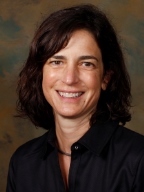
Professor of Surgery, Medicine, and Health Policy
Vice Chair for Faculty Affairs and Development
Director, UCSF Center for Surgery in Older Adults (CSOA)
Health Services & Implementation Science Co-Lead: Dr. Finlayson is a colorectal surgeon trained in health services research with expertise in the treatment of colon and rectal cancer, ulcerative colitis and Crohn's disease. She is a specialist in minimally invasive surgical techniques. Her research examines functional outcomes after major, high-risk surgery in frail older adults and is currently PI on NIA-funded R-01 and R-21 projects. Dr. Finlayson is Director of the Department of Surgery Faculty Mentoring Program and leads the health services research core on the UCSF resident research committee. She has served as mentor for numerous trainees and several junior faculty who have been recently funded by career development awards.
Dr. Finlayson will mentor research trainees in the use of large datasets to evaluate outcomes in older adults undergoing surgery, and in studies of pre-operative “prehabilitation” services to improve surgical outcomes in older adults.
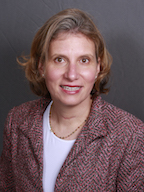
Professor of Surgery
Division of Surgical Oncology
Vice Chair of Quality and Safety
Co-chair, Department of Surgery Research Committee
Health Services & Implementation Science Co-Lead: Dr. Wick is a colorectal surgeon serving as both the surgery informatics lead and medical director of perioperative quality and safety for UCSF Health. Her work spans hospital operational, quality improvement, implementation science and research spheres. Dr. Wick leads the Agency for Healthcare Research and Quality (AHRQ) Safety Program for Improving Surgical Care and Recovery and contributed to the AHRQ ACTION Safety Program for Surgery, overseeing four surgical residents.
A range of opportunities are available to trainees in the realm of quality improvement and implementation science, focusing on geriatrics, pediatrics, anesthesiology and more.
Professor, Hospital Medicine
Dr. Auerbach’s research goals span the assessment of quality and outcomes of care, quality improvement intervention design/evaluation, particularly in the context of electronic health records, and studies of physician specialties and care systems, especially the hospitalist model. He has recently assembled a hospital consortium entitled the 'Hospital Medicine Reengineering Network” to further these goals on a larger scale and provide support to trainees and physicians seeking to measure their performance. He has been deeply focused on the development of mentees, most recently becoming Core Faculty for UCSF’s Clinical Informatics Fellowship.
Project opportunities include studies of determinants of medical error, large-scale evaluation of quality measurement programs, development and evaluation of healthcare improvement interventions, and innovative implementation models.
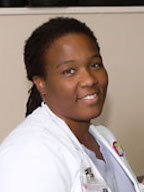
Associate Professor, Epidemiology & Biostatistics
Cancer Prevention Institute of California
In addition to being board certified in general, colon and rectal surgery, Dr. Rhoads’ research examines the relationship between delivery of evidence-based cancer care and survival disparities in California. She developed and uses a novel data set comprised of population-based cancer registry data linked to statewide clinical discharge, emergency room, ambulatory surgery data and hospital financial characteristics. As Director of the Office of Community Engagement for the HDFCCC, she provides leadership for UCSF institutional investigators in their engagement with local communities. Dr. Rhoads has served as a mentor across the training spectrum from premedical and pre-doctoral students (5); to resident trainees and fellows (5) as well as junior faculty (2).
Opportunities for T32 mentees include evaluating the quality of cancer care; correlating quality with outcomes; implementing a cancer quality improvement tool in safety net settings; community engaged research in cancer care delivery and access as well as geospatial analysis of cancer disparities, and developing and implementing targeted recruitment strategies in underserved communities (including the WISDOM study).
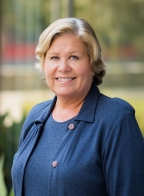
Professor, Clinical Pediatrics; Medical Director Cancer Genetics, HDCCC
Dr. Scheuner-Purcell is an internist and clinical geneticist with research interests in health services and implementation research, addressing family health history, screening for Lynch syndrome (the most common cause of hereditary colon cancer), and strategies for improving communication of genetic test results between the laboratory and ordering clinician. As former Chief of Medical Genetics at the VA Greater Los Angeles Healthcare System, Dr Scheuner-Purcell has mentored many genetic fellows and residents.
Trainees can participate in projects examining care coordination to facilitate precision medicine services in the Veterans Health Administration, as well as recruitment of veteran’s for the WISDOM study.
Associate Professor, Medicine
Dr. Smith’s research program focuses on improving palliative care for vulnerable and dependent elders. He has interests in bioethics and improving patient physician communication, applying a range of complementary methodologies, including analyses of large datasets, qualitative in-person interviews conceptual ethical analysis. He is a co-founder of ePrognosis.org, an online compendium of prognostic calculators. Among other mentorship roles, he serves as Co-Director of UCSF’s NIA-funded T32 training program in aging research and was awarded the 2019 UCSF Academic Senate Distinction in Mentoring Award at the Associate Professor Level.
Trainees can participate in Dr. Smith's research program focused on developing better prognostic models for older adults, and improving communication of prognosis.
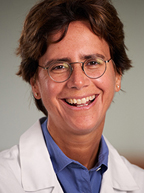
Chair, Department of Surgery
Leon Goldman, MD Distinguished Professor of Surgery
Professor, Department of Medicine
Affiliated faculty, Philip R. Lee Institute for Health Policy Studies
University of California, San Francisco
Dr Sosa’s clinical interests are in surgical oncology, focused primarily on the management of thyroid cancer. Her research interests are in health services, clinical trials and translational research, focusing on identifying ways to optimize patient outcomes following surgery and in the arena of endocrine neoplasia and thyroid cancer in particular. Dr. Sosa has mentored approximately 75 students, residents, fellows and junior faculty over her career.
Trainees can participate in her endocrine surgery research group and ongoing research efforts focused in cancer registry development, clinical trials, and outcomes research in surgical oncology, including R-01/FDA collaboration.
Professor, Department of Medicine; Chief, Division of Geriatrics
Dr. Walter is a clinician-researcher, a national leader in evaluating the real-world risks and benefits of cancer screening in older patients. She has developed often-cited methodology demonstrating the fundamental importance of life expectancy rather than age in determining benefits and risks of screening. Having received multiple UCSF mentor awards, her current activities include Director of the Older Americans Independence Center Research Education Component and is Associate Director of the UCSF CTSI Career Development (KL2 Scholars) Program.
Trainees can participate in Dr. Walter's health services and outcomes research program through projects that inform individualizing cancer screening and treatment decisions among older adults using large VA and Medicare databases.
Professor, Medicine and Clinical Pharmacy
Dr. Wilsons’s current research focuses on economic and outcome analyses, including the cost of illness and cost effectiveness analyses of cancer and specific chronic diseases (including rare diseases) and how new diagnostics, treatments, and patterns of care affect the costs and outcomes of these diseases. She is currently working with the FDA to incorporate patient preference into the approval of devices using behavioral economics discrete choice approaches. Dr. Wilson has mentored multiple post-doctoral fellows. She runs the Program for Outcomes and Pharmaceutical Economics and Policy Studies which has mentored numerous students and fellows across clinical departments, enabling them to enter clinical or policy related careers.
Trainee opportunities include participation discrete choice experiments of new approaches to cancer screening and of adherence decision for oral cancer drugs given cost information. Training in the conduct of cost-effectiveness analyses of new cancer treatments as well as new approaches to data generation in the course of care (OneSource).